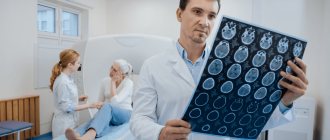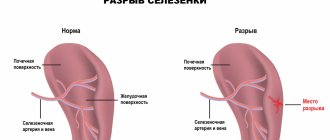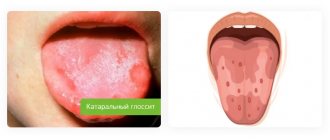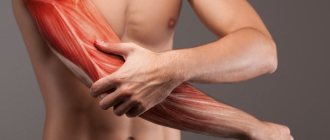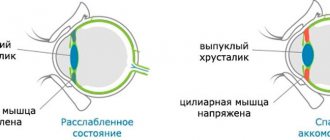Tension headaches are typically diffuse, mild to moderate in intensity, and are often described as feeling like a “tight band” around the head. Tension headache (TTH) is the most common type of headache, yet the causes of this type of headache are still not well understood.
Treatment for tension headaches is quite effective. Management of tension-type headaches is often a balance between a healthy lifestyle, the use of non-drug treatments, and adequate drug treatment.
What Can Cause Tension Headaches?
The true reasons for the development of tension-type headache have not yet been clarified, but doctors have identified two provoking factors.
Mental stress
We are talking about a chronic stressful condition, which is accompanied by severe muscle tension. During such tension, compression of the blood vessels located in the thickness of the muscles occurs, which leads to disruption of metabolic processes. It is precisely this “mechanism” of development of the problem that provokes a severe headache - this is a signal that something needs to be done to prevent the development of serious pathologies of a neurological nature. In this case, you need to remove the stress factor.
Incorrect ratio of pain and anti-pain impulses
This problem occurs with frequent anxiety, anxiety, and depression, which cause disturbances in the functioning of mediators. This situation ends with a decrease in the threshold of pain perception, and the person experiences severe headaches from any even minor touch.
Doctors do not separate these two provoking factors, since they are always interrelated. The described condition in almost every case is associated with hypochondria, neuroses and asthenia.
Causes
TTH is a neurological disease that occurs as a result of:
- psycho-emotional stress, depression, prolonged stress of a negative or positive nature;
- long-term stay of the muscle fibers of the neck, upper back, eyes in a tense static state;
- increased fixation of attention, strong concentration;
- long-term unsystematic use of analgesics, tranquilizers;
- sleeping in an uncomfortable position.
How does HDN manifest?
The symptoms of the disease in question are quite characteristic and can form the basis for making a preliminary diagnosis. The patient will complain of constantly present dull sensations of pressure in the muscles of the neck, temporal muscles, and scalp muscles. They are often described as looking like they are wearing a hoop, hard hat or helmet on their head. Characteristics of pain with TTH:
- Most often, bilateral localization of unpleasant sensations is recorded, sometimes it is unilateral;
- may have a clearly circumscribed location, but is often described as “spill over”;
- the pain becomes more intense with any touch, shock, going down stairs, moving the head, and even blowing wind.
Please note: tension headaches may be accompanied by sensitivity to light and sound. Nausea and vomiting are not typical for HDN.
Based on how often symptoms appear, TTH is divided into two types.
- Episodic pain. Appears up to 15 times a month, each attack lasts no more than 30 minutes, and can occur during physical activity.
- Chronic pain. The frequency of attacks is more than 15 times a month, and the total duration is 3 months.
The episodic form of the disease always becomes chronic if the person has not received any treatment.
At CELT you can get advice from a neurologist.
- Initial consultation – 4,000
- Repeated consultation – 2,500
Make an appointment
Physiotherapy methods
With frequent attacks of tension-type headache, taking painkillers does not always solve the problem. In some cases, this may, on the contrary, worsen the situation. Most often, patients are prescribed complex preventive treatment, the purpose of which is to reduce pain sensitivity and prevent further development of the disease.
The therapy uses stress-reducing, muscle relaxing, non-drug treatment methods that reduce the electrical activity of the brain, among which the most effective are:
- manual therapy;
- exercise therapy;
- physiotherapy for the head and neck area;
- carboxytherapy;
- ILBI;
- mesotherapy;
- acupuncture;
- blood ozonation;
- multimag (Headache program);
- MDM therapy;
- myorhythm;
- micropolarization of the cerebral hemispheres;
- cutaneous electrical neurostimulation.
Diagnostic methods
As a rule, a patient with a headache consults a neurologist. At the first appointment with a doctor, the patient must answer a number of questions - how often does a headache occur, what can it be associated with, what time of day does it occur, where is it localized. Then a life history will be collected - the doctor will find out what diseases were previously diagnosed, whether head injuries have occurred recently, and so on.
Often such a full-fledged survey is enough to make a diagnosis, but in order to prevent mistakes, specialists prescribe an instrumental examination, often a computed tomography of the brain. If there are no morphological pathological changes in the structure of the brain, blood pressure levels are within normal limits, and no other reasons for the occurrence of the condition in question have been identified, then the diagnosis is considered complete.
Diagnostics
HDN cannot be detected by instrumental and laboratory medical examination methods. To identify a disease, an analysis of the patient’s general health and complaints is required. In order to diagnose HDN, a specialist conducts an examination and performs tests, based on the results of which a final diagnosis is made and complex therapy is selected.
The main diagnostic methods include:
- taking anamnesis;
- examination by a neurologist;
- identifying pain in the head, cervical spine, and upper back by palpation;
- MRI, CT, examination of the blood vessels of the brain, neck (for the possibility of organic lesions);
- blood and urine tests.
Patients are advised to keep records of the progress of headache attacks. Keeping a diary will help the doctor when making a diagnosis and selecting effective treatment.
Treatment for tension headaches
This type of headache requires the use of certain medications. If the type of tension headache in question occurs infrequently, then a single dose of non-steroidal/anti-inflammatory drugs will help. With frequent repetitions of episodic TTH, doctors suggest that the patient take a course of the same medications in order to “break” the cycle of repetitions.
Please note: if after the first course of the described therapy there is no relief, then repeating the treatment is not advisable.
Acupuncture
- Cost: 3,000 rub.
- Duration: up to 20 minutes
More details
Often, TTH is accompanied by spasm of the pericranial muscles (muscles of the back of the neck, masticatory, temporal, scalp muscles), which worsens the patient’s well-being and intensifies the main symptom. To get rid of this unpleasant feeling, it is recommended to take muscle relaxants. Also for this purpose, injections of local anesthetics (lidocaine, naropin) are performed into spasmodic muscles.
People with pronounced symptoms most often do not seek qualified medical help, but try to solve the problem on their own by taking painkillers. This will not solve the problem - treatment of tension-type headache requires an integrated approach. As an additional therapy, a specialist may prescribe vitamins, nootropic or sedatives.
Additional treatment methods play an important role in successful therapy:
- acupuncture;
- massage;
- auto-training and psychotherapist assistance;
- physiotherapy (electrosleep, electrophoresis on the cervical spine with various drugs).
Causes
There are many reasons. As a rule, in order for tension-type headache to develop, a combination of several factors is necessary:
- Mental: depression, anxiety, asthenia, neurosis, excessive and prolonged stress, psychological trauma, addiction, the predominance of psychological stress over physical stress.
- Neurological: increased muscle tone, physical inactivity, impaired outflow of intracranial fluid, osteochondrosis (dorsopathy) of the cervical spine.
- Abuse of painkillers and sedatives and drugs.
- Overwork, lack of sleep and malnutrition.
Treatment of chronic tension headache
If a tension headache occurs in a chronic form, then it is forbidden to take classical drugs with an analgesic effect! Not only will they not relieve pain, but they will also complicate the process of full treatment. Doctors prescribe antidepressants, which must be taken for six months according to a specially developed individual regimen. It is also possible to prescribe other medications from the group of antidepressants; the course of therapy is at least 60 days.
This treatment tactic involves not only getting rid of pain, but also eliminating the cause of tension headaches - for example, antidepressants solve the problem of dysfunction of the autonomic nervous system. Physiotherapeutic procedures (the same as in the case of therapy for episodic pathology) will also have an additional therapeutic effect.
Tension headaches require a professional approach to treatment. If symptoms of this disease appear, it is advisable to contact specialists at CELT - all necessary diagnostic measures will be carried out and treatment will be prescribed.
Make an appointment through the application or by calling +7 +7 We work every day:
- Monday—Friday: 8.00—20.00
- Saturday: 8.00–18.00
- Sunday is a day off
The nearest metro and MCC stations to the clinic:
- Highway of Enthusiasts or Perovo
- Partisan
- Enthusiast Highway
Driving directions
Consequences
Often, due to the mild severity of the symptoms of tension-type headache, a person gets used to it and simply does not pay attention to the pain. Meanwhile, tension within the body increases, ultimately leading to depression, nervousness, aggressive behavior, and psychosis. If TTH becomes pronounced, the patient cannot relax, feels weak, gets irritated for no apparent reason, and gets tired quickly.
When you try to cope on your own, without the use of professional complex therapy, the situation quickly worsens. Episodic attacks turn into systematic ones, which leads to a decrease in the level of performance, disorder of behavior and character of a person.
Read also
Migraine
Migraine or headache seriously worsens a person's condition, especially with frequent attacks - chronic migraine.
At the same time, people often do not take migraines seriously, without even thinking about seeing a doctor.… Read more
Cluster headache
One of the types of primary cephalgia is cluster headache ("cluster" - "bundle"). This type of cephalalgia is characterized by very intense, short attacks concentrated around the eye...
More details
Headache due to neuralgia of the greater occipital nerve
Headache caused by neuralgia of the greater occipital nerve occurs in 40% of patients. This is a signal from the body about the presence and development of serious problems. Unpleasant sensations are often confused by sufferers...
More details
Overuse headache (Headache caused by excessive medication)
Frequent headaches are a good reason to immediately contact a neurologist. Otherwise, you can miss the onset of a serious illness or lead yourself to the formation of an abusive headache...
More details
Temporomandibular joint dysfunction
Symptoms of dysfunction of the temporomandibular joint Among all the lesions of the mandibular joint, one can note myofascial pain click syndrome of the masticatory muscles, which characteristically translates ...
More details
Drugs for drug therapy
Treatment is prescribed by a doctor in the form of the complex use of various means (medicinal, relaxation, etc.). The main place in it is given to bringing the patient’s psycho-emotional state back to normal. Antidepressants are prescribed for the treatment of depression, phobias, and anxiety. Muscle relaxants are used to relieve muscle tension and spasms. Rapid-acting NSAIDs help cope with illnesses that develop under the influence of stress. There is no single recipe for getting rid of the disease; each patient requires a personal selection of medications.
To stop an attack and relieve acute symptoms of the disease, the following are most often used:
- ibuprofen;
- paracetamol;
- diclofenac;
- acetylsalicylic acid (aspirin);
- flupirtine.
To prevent an attack, take:
- amitriptyline;
- tizanidine;
- nortiptyline;
- baclofen.
You should be careful when taking medications when treating TTH. Using a painkiller for too long can have the opposite effect and cause another headache - a headache.
Prevention of tension-type headache
For prevention purposes, it is proposed to use non-medicinal methods:
- Sleep at least 7-8 hours.
- Eat well and often (3-6 times a day), drink 2 liters of water.
- Avoid coffee, which contains caffeine, which dilates blood vessels and causes an increase in blood pressure.
- Reduce consumption or completely eliminate alcohol, after which oxygen starvation occurs, which has a destructive effect on brain cells.
- Choose the most optimal rest and work regime for your health.
- Organize breaks at work more often, during which it is recommended to perform exercises for the eye muscles and do physical warm-up.
- Move actively, take long walks in the air every day.
- Do exercise therapy, water procedures, use massage, acupuncture, manual therapy.
- Follow your doctor's instructions.
